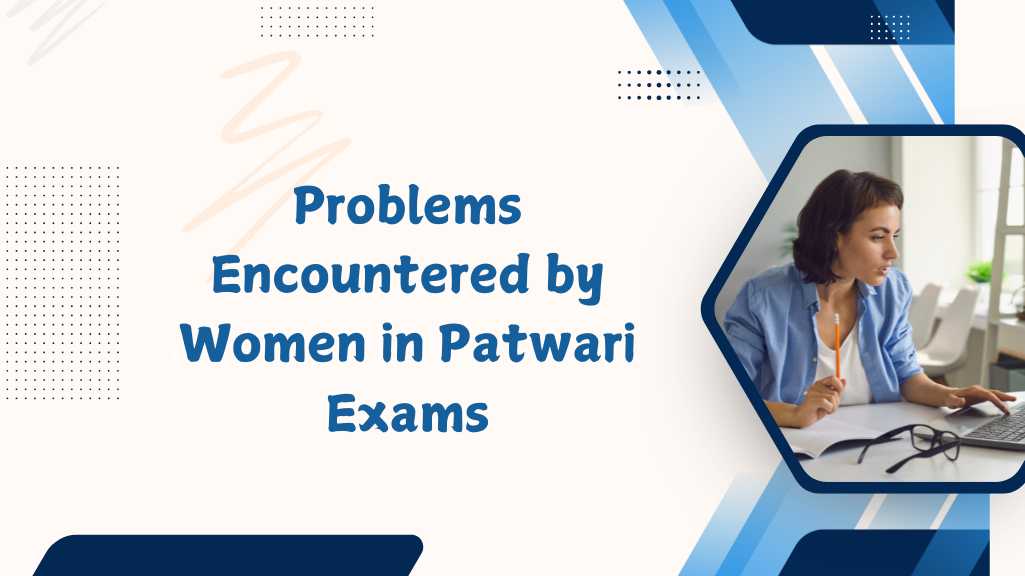Patwari is an important post in the land revenue administration where all these centuries its post has been filled only by males. However, the hike in the number of female aspirants in the Patwari field is a landmark change to ensure gender representation and development in Pakistan’s modernization process. This article reviews women in the Patwari system, the difficulties they encounter, new changes, and their importance in the current society’s land management subsystem.
Table of Contents
Basically, the Patwari profession can be described as one of the traditional jobs related to the administration of revenue records.
A patwari is the official, who is expected to compile maps with geographical information of land’s ownership, and boundaries along with managing to address the disputes on the provisions related to land along with the right to collect the corresponding taxes – the land revenue. The Patwaris have traditionally had an important function in the rural administration of the country serving as agents of the government for the rural population.
In the context of Pakistan, the Patwari system functions in the Revenue Department for the proper and clear identification of the ownership of the land and for managing the rural area efficiently.
The Rise of Women in the Patwari Career
Historically, the profession has also proven sensitive to males because of the social-cultural belief system, the physical nature of the tasks handled, and beliefs that the job is not suitable for women. But recent years have seen a slow change in this scenario. State policies that support the equality of women in society and education, besides, the advancement in technology that has spurred the government to digitize land documents that balance the competency of women for the profession.

Factors That Ensured Women to Enter Patwari Career
- Educational Opportunities: Graduate women educated in geography, public administration, and law are now ready to assume the responsibilities of a Patwari.
- Government Initiatives: Legal requirements to provide certain proportions of women in public service employment and specific recruitment campaigns have promoted women’s employment issue in the sphere.
- Digitalization: The use of GIS mapping, online land records, and some mobile applications in practice has minimized the physical strain and has given some prospects of career opportunities to women.
Modern women’s roles and contributions as land administrators
Female holders of the Patwari position enhance and enrich the government and its ability to interact with the community.
Challenges of Leaving No One Behind in the Resolution of Land Disputes: The Case for Gender Bernardita Gonzalez Burke and Robert C. Brucella
It is noteworthy that women patwaris appear to be biased sales witnesses especially where the disputants are women. Their lookup ensures that the minority groups are given fair representation hence giving confidence to the society.
Geographical Information System I Digital Management of Land Records
Amidst the developments and migration towards digital systems, most women have shown efficiency of the online land records and accountability. Indeed, their tech-savviness plays a role in enhancing efficiency in the current leadership and government systems.
Empowering Rural Women
Women Patwaris set examples of others to increase females’ awareness of land rights and their involvement in the governmental system at the village level. It enhances community morale by being against the type casting of certain people in society as they perform their duties in the field.
Problems Encountered by Women in Patwari Exams

Despite their growing numbers, women in the Patwari profession face significant challenges:
- Cultural Barriers: Due to culture these communities in conservative societies are not receptive to them and gender stereotypes put in place VAW. $bose2
- Workplace Harassment: Some of the Female Patwaris claim to have been harassed, both in workplaces and while on field duties.
- Lack of Infrastructure: A majority of rural places do not have amenities like separate toilets and safe means of transport for women hence doing their work becomes uncomfortable.
- Skepticism from Colleagues: Male counterparts might display a tendency to decline the cooperation suggesting that the female Patwaris are not as capable to handle the fieldwork.
To this end, this book investigates two sets of reforms: administrative reforms in Sect. 3.2 and digitalization of the patwari system in Sect. 4.2.
The development of the Patwari system and its shortcomings required it to transform and ameliorate to adapt to its present inefficient state or bring improvements to the land administrative system. Most of the reforms have been very significant in facilitating the entry of women into the profession.
Computerized Land Records
Thus, many projects like Punjab Land Record Authority (PLRA) and Sindh Board of Revenue’s Land Administration and Revenue Management Information System (LARMIS) have already digitized records of land. These systems are effectively managed by Women Patwaris; lady professionals are also utilizing different technologies so that there is no chance of rigging.
Training Programs
Both government and non-governmental organizations have started providing vocational education trainings for women in areas such as mapping, data base and conflict resolutions.
Workplace Policies
New policies including workplace harassment laws and women’s quotas in recent years have provided women with a safer and better working environment in professional practice.
The Role of Women in Patwari Day destem Of the Column Importance of women in profession that Stellation of’ Patwari day Papers on patwari « The Importance of Women in Patwari Profession « Muhammad Afzal Manhattan Multan…
- Promoting Gender Equality: Women Patwaris represent a measure of change when it comes to women employment in Pakistan.
- Enhancing Governance: The qualities they provide to the land administration make it possible to emulate the procedures to ensure that there is trust in the local institutions.
- Encouraging Economic Empowerment: Females participating in land management do attain financial and social status they need to push change in family and community circles.
The position, role, characteristics, and status of women in relation to the future prospect of the Patwari profession
Due to increasing modernization of governance system in the country, the involve-met of woman will also increase in Patwari profession in the future in context to Pakistan. Key areas for improvement include:
- Enhanced Digital Training: More about technical training for the women may help reduce barriers to their entry into the profession further.
- Community Awareness Campaigns: Congenital cultural inputs for bias that make it hard to empower women in governance include educating rural women and men on women’s appropriateness for governance.
- Infrastructure Development: The following strategies will help overcome the logistical issues: implementing the culture of female-friendly workplaces; ensuring safe transport.
Conclusion
The women in the Patwari profession are coming forward to promote the change in the known governance systems that are in practice in Pakistan. Not only do they break conventional roles of gender expectations but they also enhance land management systems and farming.
Pakistan can overcome these obstacles and further extend the reforms as a way of helping women in the Patwari profession which consequently will help to build a progressive and transparent system of governance.
Given the fact that women are now going to school, embracing the use of technology, and the increased consciousness throughout society, the future outlook for women in the Patwari field appears to be quite optimistic as we move toward more”), more gender-sensitive leadership.
FAQs:
1. What does a Patwari do?
A Patwari is an official who deals with surveys, records of land, collection of land revenue and the determination of issues arising from ownership of land. It helps to act as a bridge between the government and other rural populations of the country.
2. What does it mean that women should work as Patwari?
Patwari women enhance the fight for gender equality, increase accountability in governance and have the responsibility of protecting the rights of rural women in the management of the country’s land.
3. I want to know the problem that women faced to get job in Patwari profession?
There are certain constraints for Women Patwaris such as cultural restrictions, workplace sexual harassment, poor working infrastructure and lack of faith from male colleagues especially the-settings of rural and semi-urban culture.
4. What could be said about the effects of digitalization on women in the Patwari position?
Technological advances such as tender and digital maps for computerized record, GIS mapping and the use of mobile application made the physical encounter less stressful and therefore more women are practicing it.
5. Patwari system; To what measures have been taken to enhance the women status in this system?
Usual changes include the electronic mapping and recording system, the dedicated training courses for particular employees, the code of practice against workplace harassment, and entrance quotas for female employees, so making the workplace safer and much more representative of the population.

